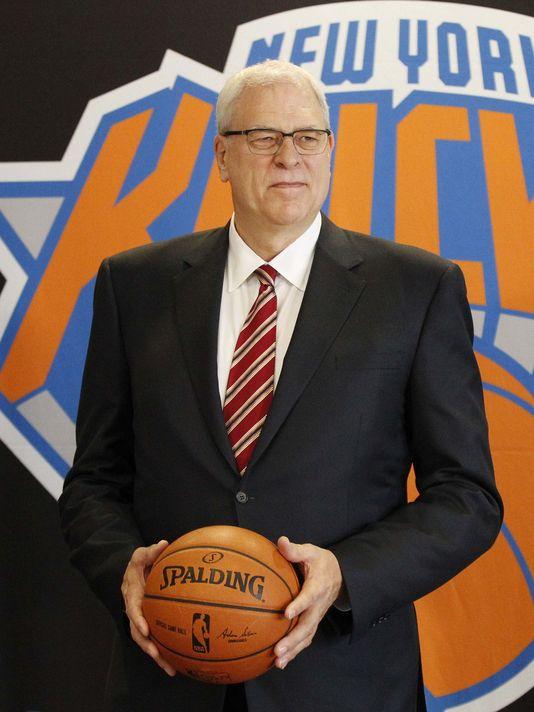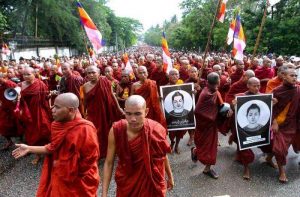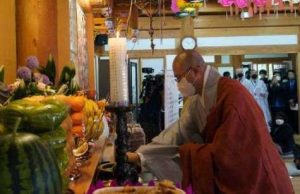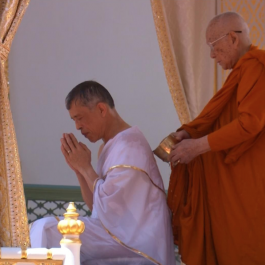At the towering height of 2.03 meters (roughly 6 feet 7 inches), it’s no surprise Phil Jackson’s life has revolved around the game of basketball. At high school he played basketball, football, and baseball, and was recruited to the University of North Dakota to play basketball. After years of playing Jackson decided to coach, and after his big break in 1987, went on to become one of America’s and the National Basketball Association’s (NBA) greatest basketball coaches. What sets this coach apart? His not-so-secret addition of mindfulness and Zen practice to his training sessions.
Born in Montana on 17 September 1945 to Charles and Elisabeth Jackson, Philip Douglas Jackson played for the New York Knicks from 1967–78 and for the New Jersey Nets from 1978–80. Retiring as a player in 1980, Jackson took up coaching and began in the lower-level leagues. In 1987, he was taken on as assistant coach for the Chicago Bulls, becoming head coach in 1989. In the years he was their coach, they won the NBA championship six times. Then, in 1999, he joined the Los Angeles Lakers, leading them to three NBA titles. During his career, he has worked with such star players as Michael Jordan, Dennis Rodman, and Shaquille O’Neal.
Jackson’s unique use of Eastern philosophy in his coaching would become his trademark style. Reverend Noriaki Ito, head of Higashi Honganji Buddhist temple in Little Tokyo, LA, and a basketball fan, said in an interview in the Los Angeles Times that he saw a Buddhist influence on the Lakers’ game with Jackson as coach. “I liken Phil Jackson to a true martial arts master who realizes that the spiritual, mental and physical have to be integrated into one,” said Ito in 2000. Articulating why Jackson’s blend of Buddhism and basketball went so well, he said, “I notice more of a focus on denying individual egos for the benefit of the team. In Buddhism, suppressing the ego is central to any kind of awakening.”
Indeed, “Zen Master” has been one of Phil Jackson’s various nicknames. According to his biography, Jackson was influenced by his older brother Joe in his leaning towards Eastern philosophy. Raised by parents who were Pentecostal ministers, at first Jackson found the ideas daunting. He was curious about his brother’s affinity for the East, however, and began to explore Zen after he entered the NBA. Jackson refers to Shunryu Suzuki’s Zen Mind, Beginner’s Mind as his initial guide, and practiced with a group of Zen students during summers in Montana.
Jackson himself has called his spiritual beliefs “Zen Christian” (The New York Times). Describing the merging of the two schools, he says that Christianity has “what I call the dispensation of grace, the idea that love is a conquering force,” whereas the Zen tradition of sitting in the lotus position “helped take some of the edge off my hard fundamentalist background.” Working with top athletes and in such a competitive sport, Jackson has tried to oppose the “ego” and “selfishness” that commonly appear in players. “I encourage freedom. What I believe in is harnessing a certain amount of discipline so that the players can have freedom within parameters,” Jackson reflects.
Such discipline hasn’t gone unnoticed—Jackson was awarded NBA “Coach of the Year” (1995–96) and “Top 10 Coaches in NBA History” (1996–97), as well as spearheading 11 NBA championships and winning the “NBA All-Star Game” head coach title four times!
Currently team president of the New York Knicks, Jackson has introduced mindfulness meditation as part of their training. Travis Wear, a Knicks player, joined his teammates for a meditation session before training. “We’re just reflecting on how our bodies are feeling. It’s really just getting in touch with where your mind is at,” said Wear (ESPN New York), demonstrating how Jackson ensures that the players are self-aware. Jackson is also known to have used techniques such as visualization in his training. So, how do the players feel about this unique method? “It’s helped me stay in the moment—really that’s the biggest thing. It’s had an impact on a lot of different things in the games. When I’m struggling, I’m able to refocus myself,” said player Langston Galloway (ESPN New York). In Jackson’s view, the players need to be able to separate themselves from anything negative happening in the game, like “a referee’s bad call.” “You’ve got to be able to come back to your center,” stressed the famous coach (ESPN New York).
“Somehow, you feel with Jackson that the ultimate goal isn’t winning, but how well the team grows together,” sums up long-time fan Reverend Ito (Los Angeles Times).
For more information, see:
Buddhism and Basketball? It Works for Phil Jackson (Los Angeles Times)
Phil Jackson Biography (biography.com)
Knicks reflect on mindfulness training (ESPN New York)
Sports of The Times; Phil Jackson Takes a Trip On Zen Ferry (The New York Times)
Phil Jackson: 7 Steps to Knowing the Zen Master (biography.com)












